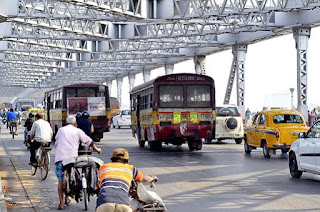Learn French Vocabulary about trains and railway stations( on prend le TGV)
At the railway station.
If you prefer voyager(travelling)à travers la France (through France ) par le train (by train), starting or ending your journey in paris, there are six main line station which can take you to any corner of France .
There are also liaison (links) to airports and other Major TGV station around Paris.
In Paris there are six main railway stations: from la gare Montparnasse, you go vers l'ouest (towards the west)
La côté atlantique , la Bretagne , le Sud-Ouest (the southwest )et l'Espagne (Spain). From la gare St Lazare you can get to le Nord de la France et la Belgique . From la gare de l'est you can reach l'est de la France (the east of France ) et l'Allemagne (German) . From la gare de Lyon you can go to learn sud-est de la France , la côté Méditerranée et l'Italie. From la gare d'Austerlitz you can reach le centre de la France.
Writer(Gaëlle Graham)
Writer(Gaëlle Graham)
Advanced French Vocabulary enhancer
- Le TGV- high speed train
- Tout bonnement/tout simplement- very simply
- La gare - the station
- La carte senior- SNSC concession card for old age pensioners
- La billetterie- the ticket machine
- Deux billets simples- one way ticket
- Deux billets aller-retour- round trip tickets
- In guichet - a ticket booth, window
- Contrôle de tickets- ticket verification
- Poinçoner/composter- to validate
- Billet de train - train ticket
- Un carnet- pack of ten metro ticket
- Les tarif/les prix- ticket prices
- In remboursement- refund
- In panneau d'administration- information display
- Le départ- departure
- L'arrivée- arrival
- Les horaires- timetable,/ schedule
- À destination de- going to
- Departs Dans l'heure- départ within the hour
- Départs banlieue- local departure
- Heure d'arrivée- arrival time
- Deux minutes d'arrêt- two minutes stop
- Une voie- train track
- Un quai- Platform
- Une voiture- coach
- Mes bagages- my luggage
- Ma valise- my suitcase
- Un chariot- baggage cart/trolly
- Porte-bagages- luggage rack
- Les guichets- ticket counters
- Un abonnement- subscription
- Un contrôle- check point
- In contrôleur- a Subway agent
- Un kiosque à journaux- newspaper stand
- In terminus- the last stop
- Souterrain- underground
- Une rame- a Subway train
- Des escaliers- staires
- Des escaliers roulant- escaliers
- Un siège- a Seat
- Un strapontin- a folding seat
- La queue- line
- In voyageuse- passenger
- Descendre du train- to get off the train
- Monter en train - to get on the train
- Assis- seated
- Une place duo- 2seats next to each other
- À bord- on board
- La circulation- traffic
- Un arrêt- stop
- Sortie- exit
- Passage interdit- do not enter
- Attention danger de mort- caution:danger of death
- En travaux- under construction
- Le chemin de fer- rail line
French extra dose
1. PREPOSITION+INFINITIVE
You already know that when two verbs follow one another the second one is in infinitive form. For example:
On devait aller à bordeBor.
Verbs following PREPOSITION are also in the infinitive . Preposition are words which have a constant spelling. They are placed in front of nouns or pronouns or in front of verbs .they are placed infroin of nouns or pronouns or in front of verbs.
The following PREPOSITION are frequently used in front of verbs in the infinitive.
À(at) de ( to/of) pour ( for/un order to)
Sans(without)
Pour monter à Paris - un order to get to Paris
Sans arrêter- without stop
J'ai essayé de ranger- I tried to tidy up.
There are two words for each of the following parts of the day and also for the year.
Un jour une joijour- a day
Une matin- une matinée- a morning
Un soir-une soiree- a evening
Un an/ une année- a year
Un jour /une journée, un matin /une matinée, un soir/un soirée, un an/ un
There is only a slight difference in meaning between the two forms and indeed that difference is not translate
In English.un jour , un matin, un soir un an are more likely to describe a portion of time defined by the calendar or the clock( an adjective connotation). Une journée, une matinée,une soirée,une année have a social connotation and are more likely to express the time experienced by individual ( a more Subjonctif meaning).
- Nous partirons dans trois jours- we'll leave in three days time.
- Nous avons passé une excellente journée au bord de la mer- WE spent an excellent day at the seaside.
- Il passe un an à Paris- he is spending one year in Paris.
- Bonne année tout le monde- have a good year everyone.



Comments
Post a Comment